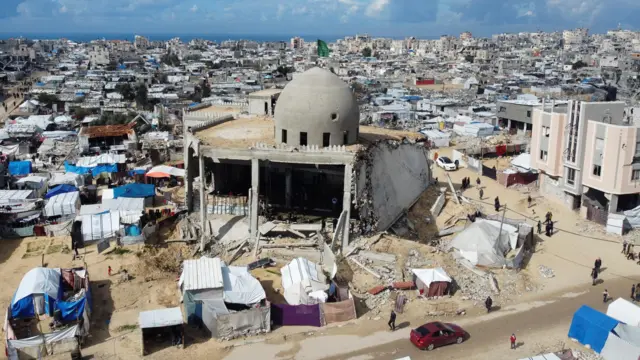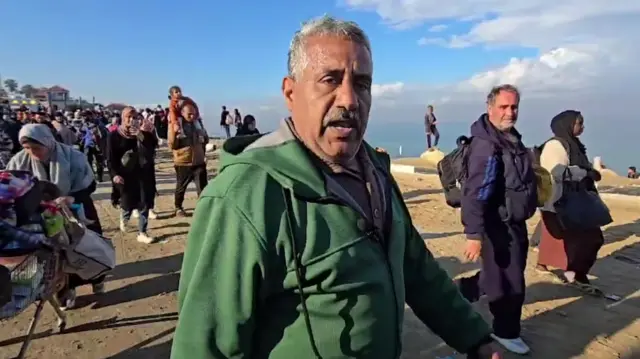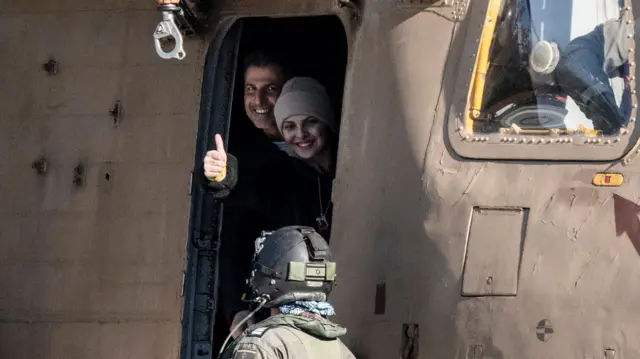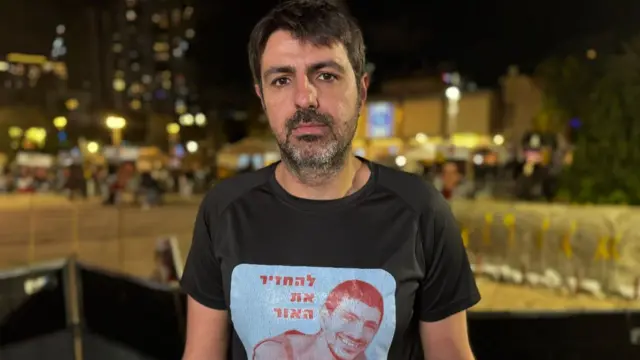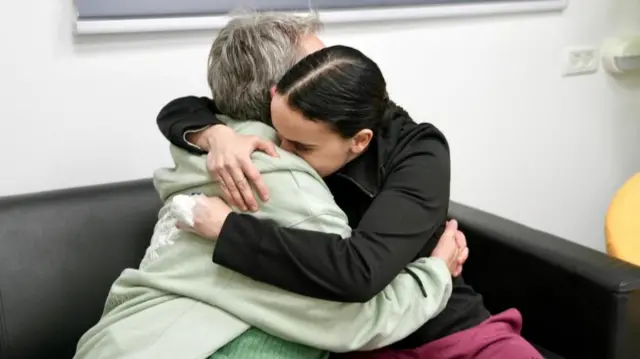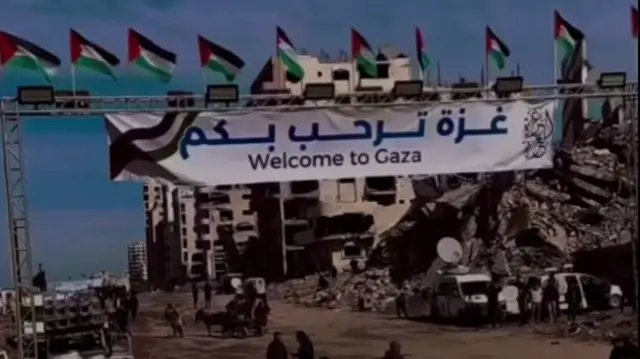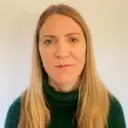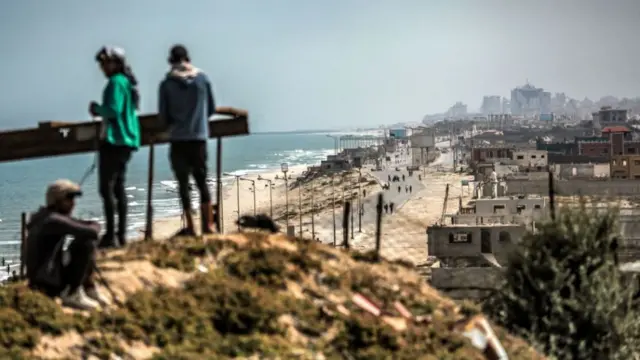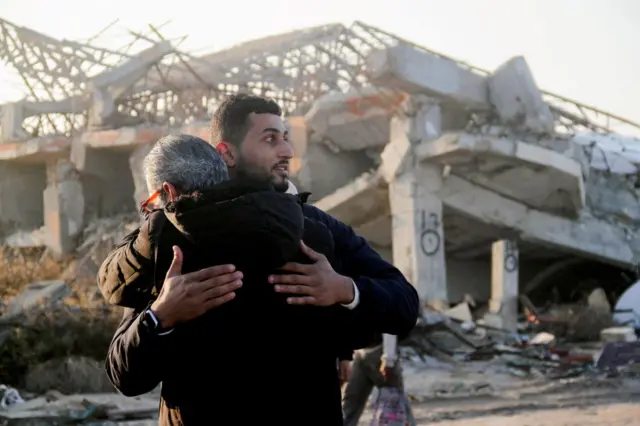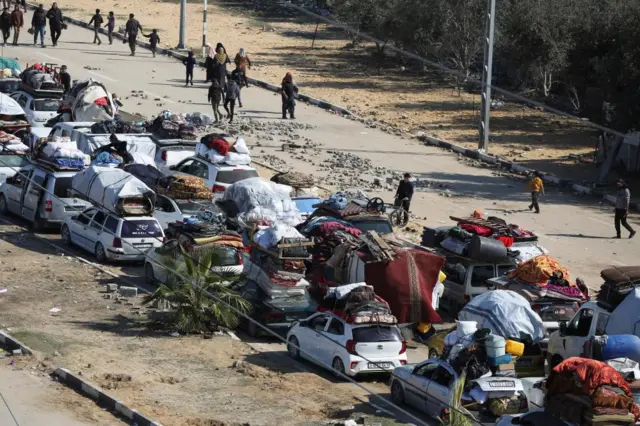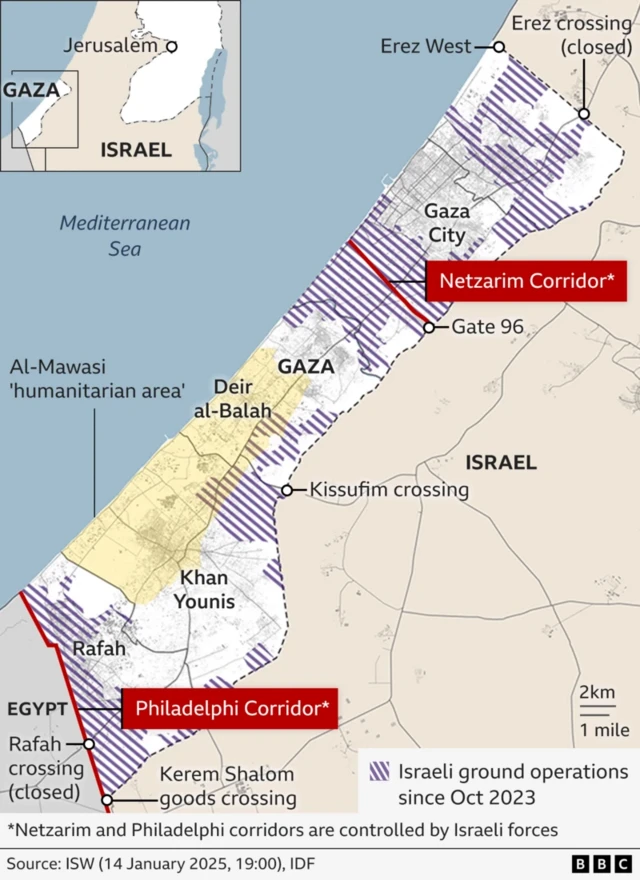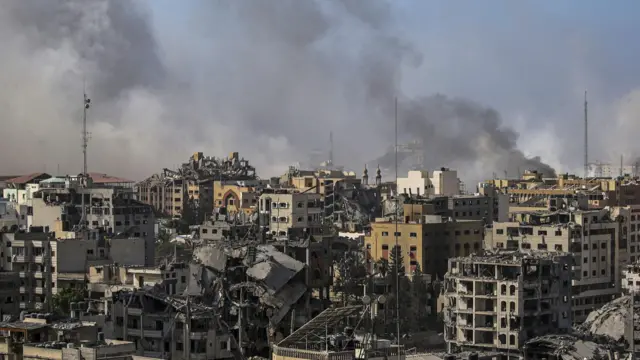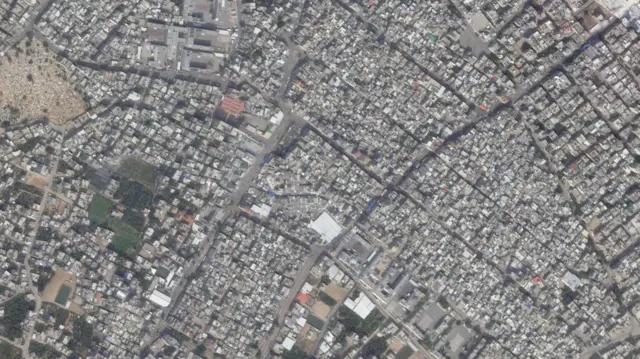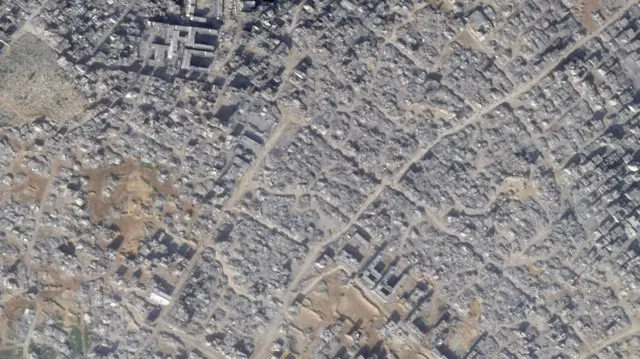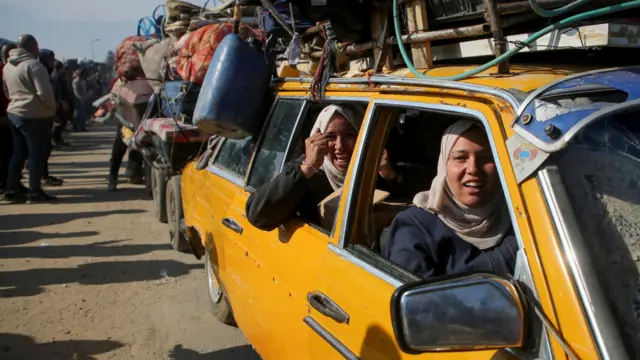What are the latest developments in Israel and Gaza?published at 16:31 GMT 27 January
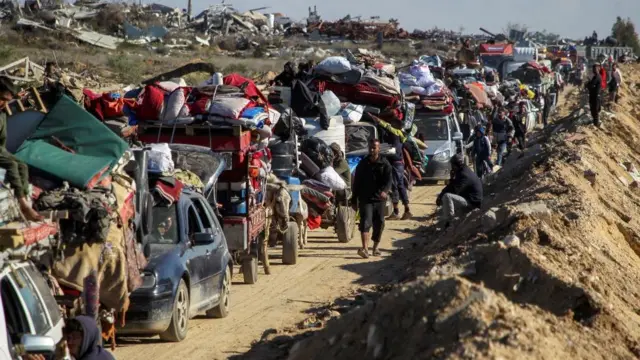 Image source, Reuters
Image source, ReutersPalestinians wait to have their vehicles inspected by the Egyptian-Qatari committee on their return to northern Gaza
We're pausing our coverage of the Israel-Hamas ceasefire, but before we do, here are the latest developments:
- Hundreds of thousands of displaced Palestinians have returned home to northern Gaza on foot, but the process could be very delayed for cars due to inspections
- Many are returning to find their homes reduced to rubble. Satellite imagery shows northern Gaza has suffered the worst damage in the Gaza Strip
- In Israel, the government has announced eight of the 26 hostages still to be released by Hamas in phase one of the ceasefire deal are dead
- Our correspondent in Jerusalem, Nick Beake, says for the families of the Israeli hostages still in captivity, the agonising wait goes on
- Israel launched a campaign to destroy Hamas in response to its cross-border attack on 7 October 2023, in which about 1,200 people were killed and 251 others were taken hostage
- More than 47,317 people have been killed in Gaza since then, according to the territory's Hamas-run health ministry
